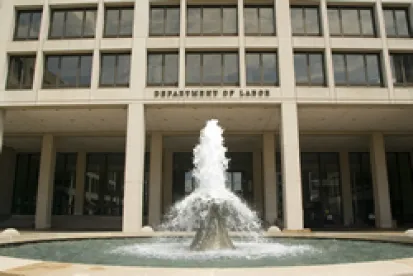A proposed rule released last week would amend the U.S. Department of Labor's Voluntary Fiduciary Correction Program ("VFCP") to allow for self-correction by plan fiduciaries in certain circumstances. The VFCP allows plan fiduciaries to potentially avoid ERISA's civil penalties by disclosing and correcting fiduciary errors in their benefit plan administration. Currently, this program requires a formal application with the Department to qualify for the relief. This application requirement is often viewed as a major hurdle to VFCP participation by fiduciaries, given that the time and expense involved in preparing the application can easily dwarf the magnitude of the potential penalties for minor errors.
The proposed revisions to the program would allow self-correction of de minimis late participant contributions or loan repayments—easily two of the most prevalent VFCP issues—if certain criteria are met. Fiduciaries would still be required to notify the Department of Labor regarding any self-correction action taken pursuant to this new opportunity but would no longer need to secure Department approval. Another linked Prohibited Transaction Exemption proposal would enhance the availability of prohibited transaction relief related to correction of these errors under VFCP.
In addition to the welcome proposals relating to self-correction, the proposed rule also restates the VFCP in its entirety, and in so doing, both clarifies and expands what transactions would qualify for VFCP relief. The restatement also simplifies the administrative and procedural requirements for obtaining that relief.
It is important to note that these changes are not yet effective and that the new self-correction option is not available at this time. It is possible that some aspects will change in any final version, based upon feedback that the Department of Labor receives during the public comment period.






 />i
/>i
